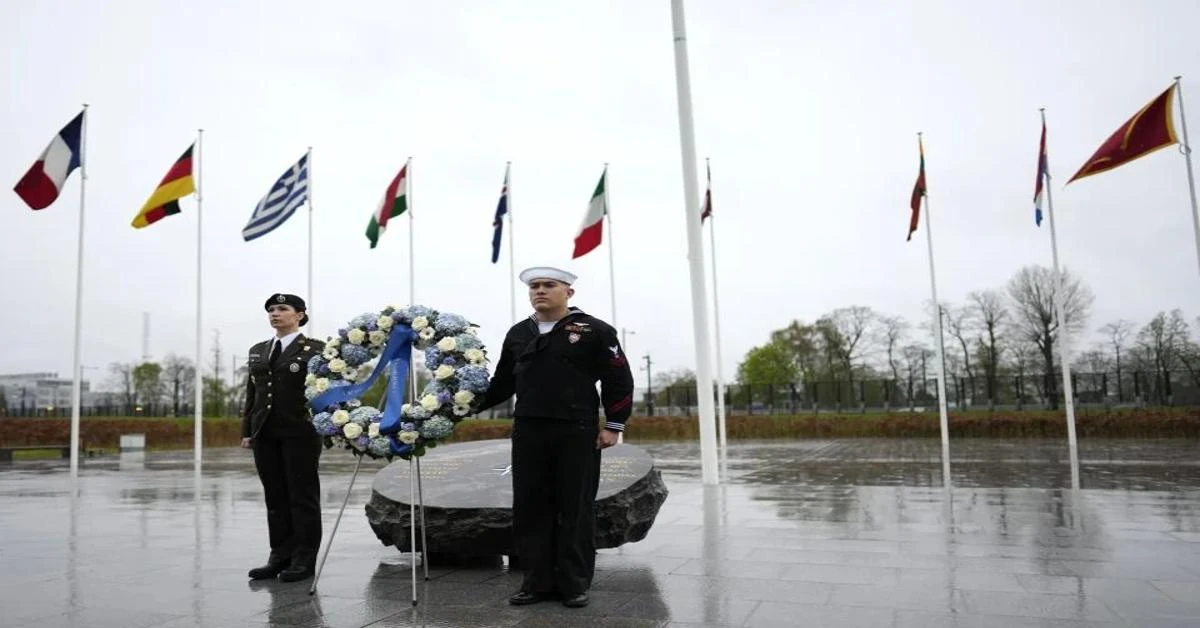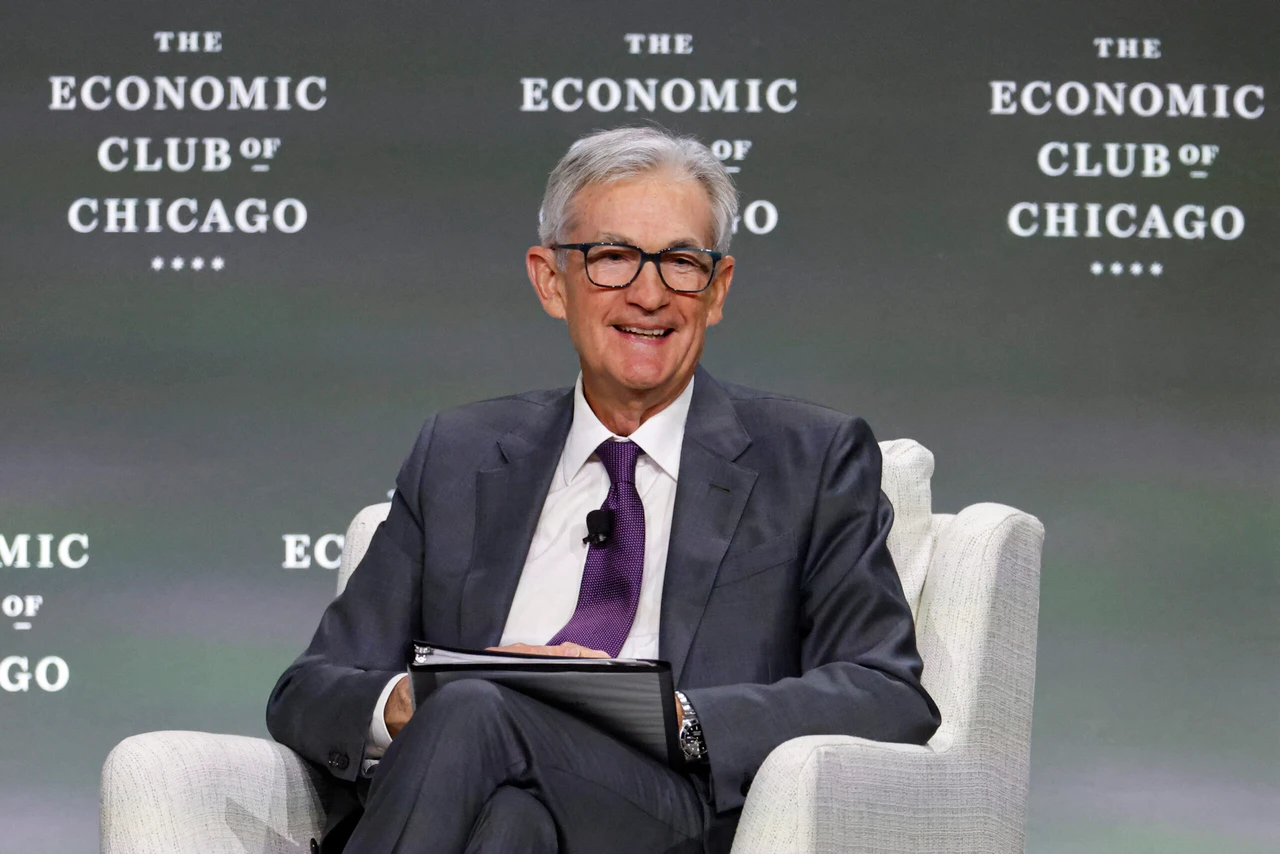NATO marks its 75th birthday amid political chaos

The anniversary comes as the now-32-nation alliance weighs a plan to provide more predictable longer-term military support to Ukraine
The anniversary comes as the now-32-nation alliance weighs a plan to provide more predictable longer-term military support to Ukraine. Plagued by ammunition shortages, Ukraine lowered the military conscription age from 27 to 25 to replenish its depleted ranks this week.
“Ukraine is under heavy attacks, like daily, 24-seven,” Estonian Foreign Minister Margus Tsahkna told reporters, appealing for more military material for Ukraine, like air defense systems, drones, and artillery shells.
“We need to give Ukraine these systems that we are not using to take and protect their people, civil infrastructure, and energy infrastructure,” he said, before a ceremony with his counterparts to mark the day NATO’s founding treaty was signed: April 4, 1949, in Washington.
A more significant celebration is planned when NATO leaders meet in Washington from July 9 to 11.
Hundreds of staffers filled the vast air terminal-like space at the center of NATO’s sprawling Brussels headquarters. In contrast, scores of others looked down from glassed walkways and stairways as Belgian and Dutch military bands played the NATO Hymn, the original Washington Treaty laid before them.
“I like the Washington Treaty, not least because it is very short,” NATO Secretary General Jens Stoltenberg said with a smile. “Just 14 paragraphs over a few pages. Never has a single document with so few words meant so much to so many people. So much security, so much prosperity, and so much peace.”
On Wednesday evening, outside Brussels, U.S. Secretary of State Antony Blinken paid tribute “to the millions of soldiers, sailors, and aviators whose courage and willingness to put their lives on the line have given weight to our sacred commitment to defend one another.”
Blinken said that even as foreign ministers mark more than seven decades of peace, “that security – together with the Alliance’s core principles of democracy, liberty, and the rule of law – is once again being threatened by those who believe that might make right… and who seek to redraw borders by force.”
Ukraine’s foreign minister, Dmytro Kuleba, also attended on Thursday. His message was more direct.
“Only today, 20 Shahed drones were shot at the city of Kharkiv and four people have been killed,” he said, adding that rescuers trying to help victims in the area were also killed.
“It is impossible to comprehend why allies cannot find additional batteries to deliver them to the place where ballistic missiles are being fired every day,” Kuleba said.
Sweden’s foreign minister, Tobias Billstrom, was participating in the first ministerial-level meeting since his country became NATO’s 32nd ally last month. Russia’s full-scale invasion of Ukraine in February 2022 drove Sweden and Finland into NATO’s arms.
“NATO represents the freedom to choose,” Finnish Foreign Minister Elina Valtonen said, reflecting on the Nordic neighbors’ recent membership. “Democratic nations, free people chose to join, unlike how Russia expands its by aggression or illegal annexation.”
President Vladimir Putin said he launched the war, in part at least, because NATO was expanding closer to Russia’s borders.
The alliance’s ranks have almost tripled from its 12 founding members, but Finland and Sweden joined in record time to shelter under NATO’s collective security guarantee.
That promise – Article 5 of the Washington Treaty – stipulates that an attack on any of their number must be met with a united response. It’s only ever been used once, after the Al-Qaeda attacks on U.S. soil in 2001.
Among the more recent successes as it grew from the Cold War and after the Berlin Wall collapsed, NATO would count its 1999 air campaign against former Yugoslavia to end a bloody crackdown on separatist ethnic Albanians and its effort to avert near civil war in Macedonia in 2001.
At the other end of the scale lies the operation in Afghanistan. NATO took command of the security effort in 2003, and it became the longest, costliest, and deadliest in alliance history. A chaotic retreat in August 2021 marked it, and many successes over almost two decades were abandoned.
Today, Ukraine also wants a seat at NATO’s table, but the alliance works unanimously, and there is no consensus on whether it should join. Most allies oppose membership while war rages on, anyway. For now, NATO promises only that its door is open for Ukraine in the future.
NATO allies cannot agree on whether to arm Ukraine either. The alliance only provides non-lethal support, such as transport vehicles, fuel, combat rations, medical supplies, and demining equipment. However, many members provide arms and ammunition bilaterally or in groups.
The bulk of NATO’s efforts since Russian troops began massing for the invasion has focused on reinforcing its own borders of Russia and Ukraine to dissuade Putin from targeting any of the allies next.
During Donald Trump’s presidency, NATO’s most powerful member country perhaps tested Article 5 most. Trump suggested the U.S. might not defend any NATO ally that failed to boost its defense spending to at least 2% of gross domestic product, as all had agreed to do in 2014.
Trump repeated the threat during his election campaign this year. NATO predicts that 18 of its 32 members will reach that target this year, up from only 3 a decade ago.
Source: AP



